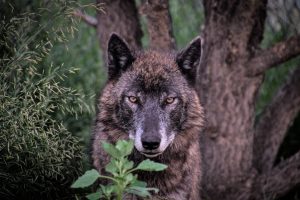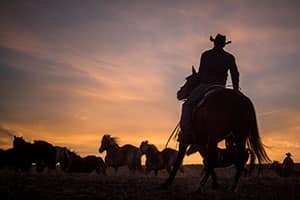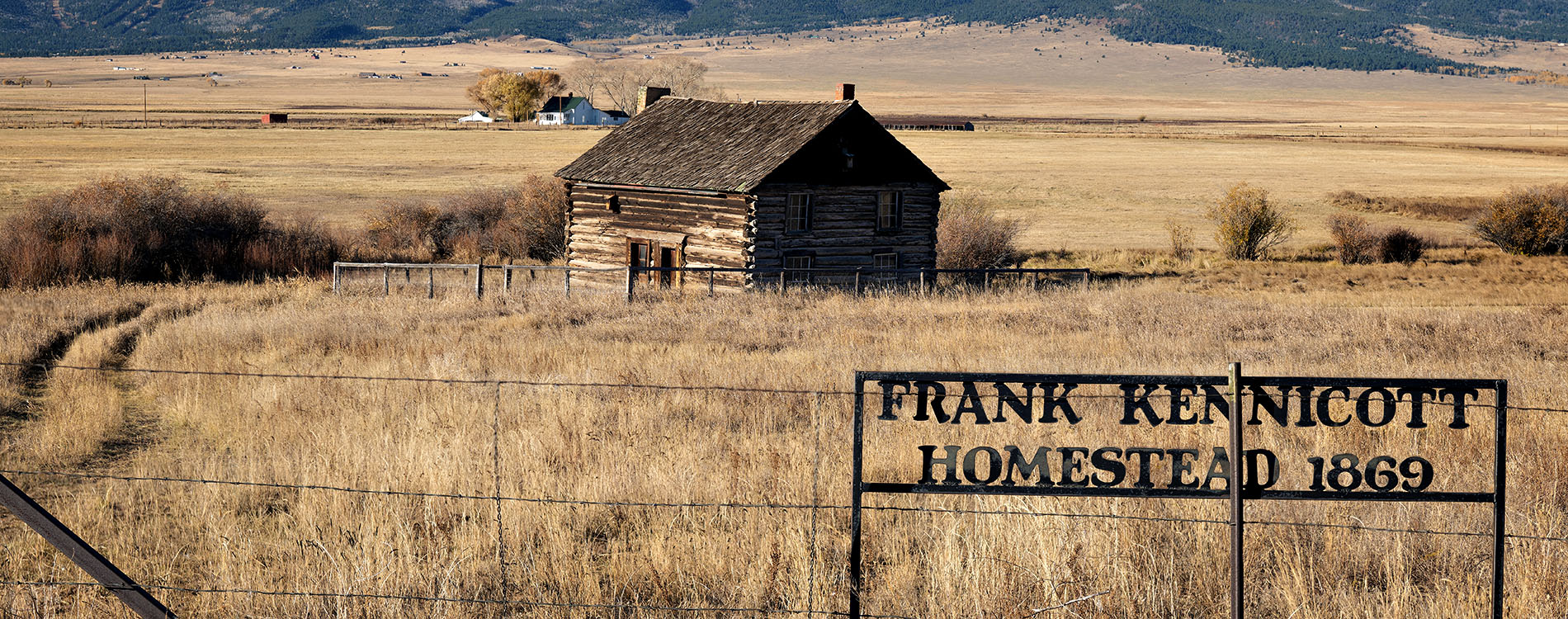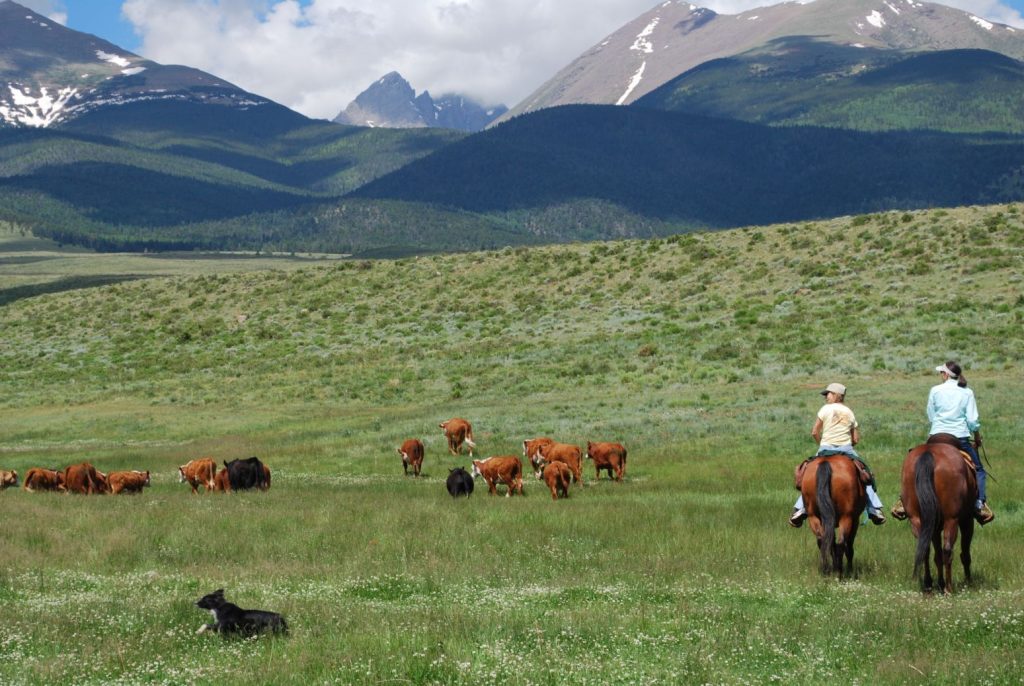Ranching has been the bedrock of the economy in the Wet Mountain Valley since the 1800’s and unsurprisingly Custer County is home to 11 Centennial Ranches, all located in or near Westcliffe, Colorado.
Kennicott Cabin – 63161 CO-69
National Register of Historic Places 2/14/97
The Kennicott Cabin is a rare example of a two-story log cabin and is significant for its association with the early settlement of the area. Frank Langdon Kennicott built the cabin on his original homestead in 1869–70, and his family lived there until the early 1890s. Originally from Illinois, the Kennicotts came to Colorado because they were suffering from tuberculosis. They recovered quickly, took 160-acre homesteads in the valley, and soon went into the cattle and freight businesses. Today a small sign on the west side of Highway 69 three miles north of Westcliffe identifies the log cabin, and the surrounding land has been placed in a conservation easement.
Centennial Farms & Ranches
Across the nation, family farms and ranches, historic barns and other agricultural sites are disappearing at an alarming rate. The contributions of Colorado’s ranching and farming families have withstood the pressures of growth, changes in farming methods, drought, and economic conditions to preserve these important pieces of our state’s commercial and cultural history.
To be considered for honorable recognition, farming or ranching properties must have remained in the same family continuously for at least 100 years, each property must still operate as a working farm or ranch and farms or ranches must have a minimum of 160 acres.
Frank Kennicott Ranch (1870)
Koch Ranch (1871)
San Isabel Ranch (1872)
Elton Camper Ranch (1874)
Brandenburg Ranch (1879)
Degree Ranch (1888)
Russell Berry Ranch (1901)
Dieckman Ranch (1901)
Walker Family Ranch (1911)
Harold G. Vickerman Ranch (1917)
Miller Ranch (1919)
San Isabel Ranch ~ 1872
Since 1872, four generations of the Kettle family have called San Isabel Ranch home. Each generation has been dedicated to the careful stewardship of land and livestock. The continued commitment to ranching ensures beautiful landscapes, lush hay ground, open space, and conserved land and water resources. This way of life represents a culture and traditions that are unique and rare; ones that bring character and identity to our community. This an honorable occupation that perhaps not suited for just anyone, but appreciated by many.
Brandenburg Ranch ~ 1879
Great Grandfather Moritz Brandenburg arrived in America from Germany in 1880. He homesteaded 160 acres in the Willows district. By 1884 he had met all the required improvements of the Homestead Act and received a patent on the property, which has become a hay and cattle operation, As are most of the ranches in the wide and beautiful Wet Mountain Valley. 100 years quickly passed; in 1984 the Brandenburg family ranch was honored as a Centennial Ranch having been in the same family for 100 years. (To add to the properties charm, in 1964 much of the movie Cat Ballou was filmed on the Ranch staring Lee Marvin and Jane Fonda.)
Due to pressure from development to grab land and agricultural water, the Brandenburg’s in 2004 filed a Conservation Easement on their ranch to protect it from “being chopped up like a pan of brownies” and to protect their water rights – in perpetuity.
Russell Berry Ranch ~ 1901
Walker Family Ranch ~ 1911
Keeping the land pristine and being stewards of the land are major focuses of W.A.W. Cattle Ranch (Walker Ranch) descendants. To that end, the working cattle and hay ranch was put into a conservation easement as a living monument to all who have gone before and to all those who follow.
Harold G. Vickerman Ranch ~ 1917
My father always said take care of the land and it will take care of you. We are still doing that after 106 years. – Larry Vickerman






